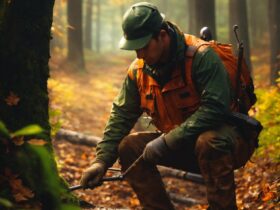When venturing into the wilderness for a camping trip or an outdoor adventure, it’s essential to be prepared with the right nutrition to fuel your body and stay healthy. Knowing what to eat in the forest for survival can make all the difference in your ability to navigate the challenges of the wilderness and enjoy your experience to the fullest.
A key rule of wilderness nutrition is to pack nutrient-dense, lightweight, and non-perishable foods that are easy to carry and won’t spoil quickly. While it’s always a good idea to pack some basic supplies, such as energy bars, nuts, and dried fruits, there may come a time when you need to forage for food in the forest to sustain yourself.
One of the most important things to keep in mind when foraging for food in the wilderness is to avoid poisonous plants and mushrooms. It’s crucial to be able to identify safe edible plants and berries, as well as know the proper way to prepare them before consumption. Some common edible plants you may find in the forest include dandelions, chickweed, lamb’s quarters, and wild onions. Berries such as blueberries, raspberries, and blackberries are also safe to eat and provide essential vitamins and antioxidants.
When it comes to protein sources, wild game can be a valuable source of nutrition in the wilderness. Depending on your location, you may be able to hunt for animals such as rabbits, squirrels, or birds. Fish is another excellent source of protein that can be found in lakes, rivers, and streams in many wilderness areas. If you’re not comfortable with hunting or fishing, foraging for insects such as grasshoppers, crickets, and ants can also provide a good source of protein in a survival situation.
In addition to foraging for food in the forest, it’s essential to stay hydrated by drinking plenty of water. In a survival situation, it’s crucial to know how to properly filter and purify water from natural sources, such as rivers or streams, to avoid getting sick from contaminated water.
Overall, wilderness nutrition is all about being resourceful, adaptable, and knowledgeable about the natural foods available in the forest. By being prepared with the right supplies and knowing what to eat in the wilderness for survival, you can ensure that you stay energized, healthy, and ready to tackle whatever challenges come your way during your outdoor adventures. Remember to always practice Leave No Trace principles and respect the environment while foraging and enjoying nature’s bounty.





Leave a Reply